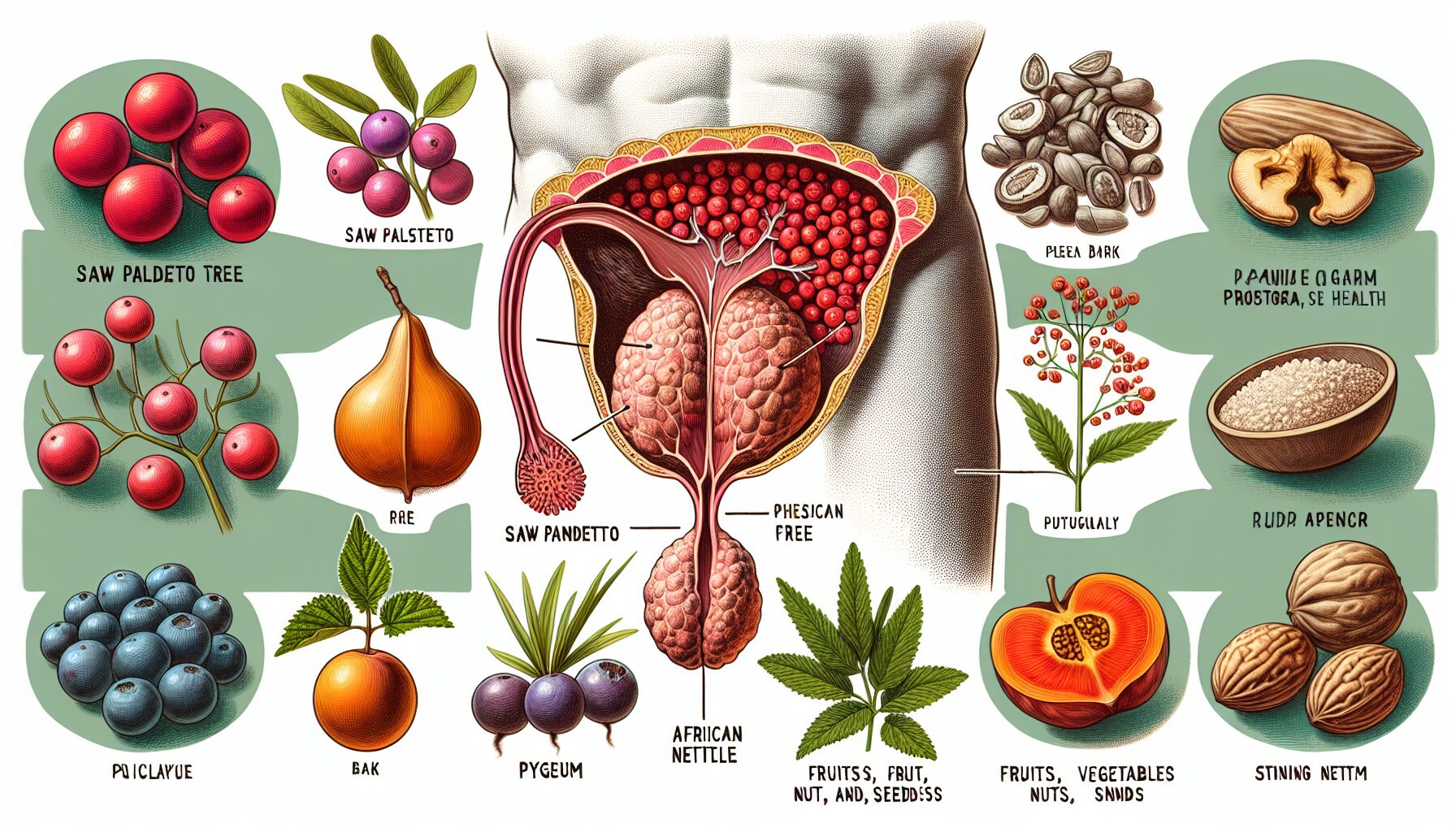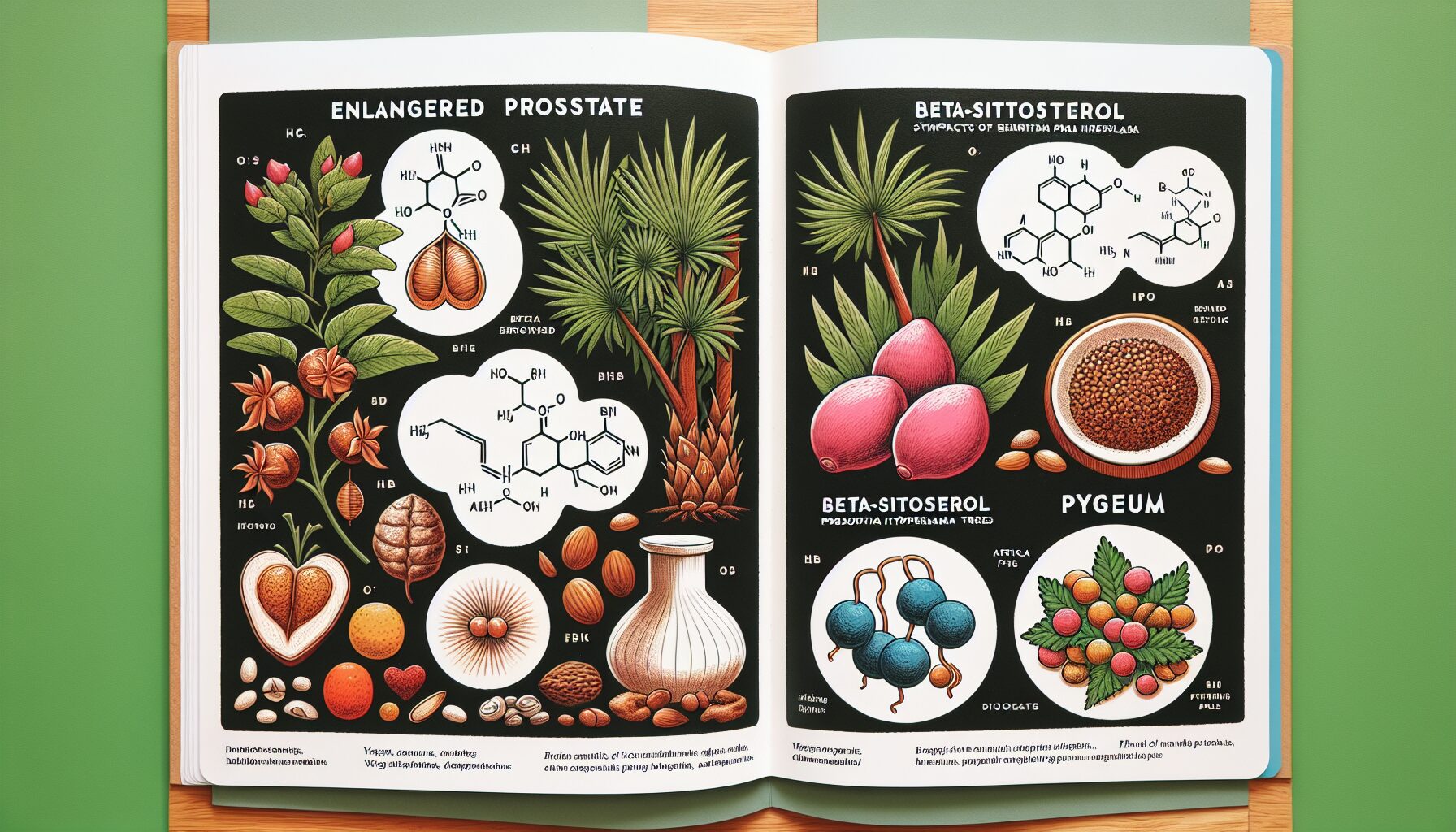Title: Embracing Natural Remedies for Enlarged Prostate: A Comprehensive Guide
Dealing with an enlarged prostate, also known as benign prostatic hyperplasia (BPH), can be a significant concern for many men, particularly as they age. This condition, characterized by the non-cancerous enlargement of the prostate gland, can lead to uncomfortable urinary symptoms such as difficulty starting urination, a weak urine stream, frequent urination, and the feeling of incomplete bladder emptying. While conventional treatments are available, many individuals seek natural remedies to alleviate their symptoms and improve their quality of life. This comprehensive guide explores various natural remedies that may help manage an enlarged prostate.
Understanding Benign Prostatic Hyperplasia

Before diving into the natural remedies, it’s essential to understand what BPH is and how it affects the body. The prostate is a small gland located below the bladder and in front of the rectum, surrounding the urethra—the tube through which urine exits the body. As men age, hormonal changes can cause the prostate to enlarge. This enlargement can squeeze the urethra, leading to urinary difficulties.
While BPH is not cancerous and does not increase the risk of prostate cancer, it can significantly impact a man’s daily life. Conventional treatments include medications like alpha-blockers and 5-alpha-reductase inhibitors, minimally invasive procedures, and surgery. However, some men prefer to explore natural alternatives either as complementary therapies or primary treatments.
Natural Remedies for Enlarged Prostate

# 1. Saw Palmetto
Saw palmetto is one of the most well-known natural remedies for BPH. Derived from the berries of the saw palmetto palm tree, this supplement is believed to work by inhibiting the conversion of testosterone to dihydrotestosterone (DHT), a hormone that can contribute to prostate growth.
Several studies have shown that saw palmetto may help reduce urinary symptoms associated with BPH. For instance, a review published in the journal *Cochrane Database of Systematic Reviews* found that saw palmetto improved urinary flow and reduced nighttime urination in men with BPH.
# 2. Beta-Sitosterol
Beta-sitosterol is a plant-based compound found in various fruits, vegetables, nuts, and seeds. It has been studied for its potential benefits in managing BPH symptoms. Beta-sitosterol is thought to work by reducing inflammation and improving urinary flow.
A study published in *The Lancet* reported that beta-sitosterol significantly improved urinary symptoms and flow measures compared to a placebo. While more research is needed to fully understand its mechanisms, beta-sitosterol remains a popular natural remedy for BPH.
# 3. Pygeum
Pygeum is an extract from the bark of the African plum tree (Prunus africana). It has been traditionally used in African medicine to treat urinary problems. Pygeum is believed to have anti-inflammatory properties and may help reduce prostate size.
Research published in *BJU International* suggests that pygeum can improve urinary symptoms and quality of life in men with BPH. The study found that pygeum was effective in reducing nighttime urination and improving urine flow.
# 4. Stinging Nettle
Stinging nettle (Urtica dioica) is another herbal remedy commonly used for BPH. It contains compounds that may help reduce inflammation and support prostate health. Stinging nettle is often used in combination with other herbs like saw palmetto.
A study in *Phytomedicine* found that a combination of stinging nettle and saw palmetto was more effective at improving urinary symptoms than placebo or either herb alone. This suggests that stinging nettle may enhance the effectiveness of other natural remedies.
# 5. Pumpkin Seed Oil
Pumpkin seed oil is rich in essential fatty acids and antioxidants, which may benefit prostate health. It has been traditionally used to treat urinary problems related to an enlarged prostate.
Research published in *Nutrition Research and Practice* indicated that pumpkin seed oil supplementation improved urinary function and reduced symptoms of BPH in men. The study concluded that pumpkin seed oil could be a valuable addition to natural BPH management strategies.
# 6. Lycopene
Lycopene is a powerful antioxidant found in tomatoes and other red fruits and vegetables. It has been studied for its potential role in reducing prostate size and improving urinary symptoms.
A review published in *Prostate Cancer and Prostatic Diseases* highlighted that lycopene intake was associated with a lower risk of BPH progression. Incorporating lycopene-rich foods into your diet may provide additional support for prostate health.
Lifestyle Changes for Prostate Health
In addition to herbal remedies and supplements, certain lifestyle changes can also play a crucial role in managing BPH symptoms:
1. Dietary Modifications: Adopting a diet rich in fruits, vegetables, whole grains, and lean proteins can support overall health and potentially reduce BPH symptoms. Foods high in zinc (such as oysters, pumpkin seeds, and beans) are particularly beneficial for prostate health.
2. Regular Exercise: Physical activity helps maintain a healthy weight and reduces inflammation, both of which are important for managing BPH. Aim for at least 30 minutes of moderate exercise most days of the week.
3. Hydration: Staying well-hydrated is essential for urinary health but avoid excessive fluid intake before bedtime to reduce nighttime urination.
4. Limit Caffeine and Alcohol: Both caffeine and alcohol can irritate the bladder and exacerbate urinary symptoms. Limiting their consumption can help manage BPH-related issues.
5. Pelvic Floor Exercises: Strengthening pelvic floor muscles through exercises like Kegels can improve bladder control and reduce urinary symptoms.
Conclusion
Managing an enlarged prostate naturally involves a combination of herbal remedies, dietary adjustments, exercise, and lifestyle changes. While these natural approaches can provide relief for many men, it’s essential to consult with a healthcare provider before starting any new treatment regimen—especially if you are already taking medications or have other health conditions.
By embracing natural remedies and making thoughtful lifestyle choices, you can take proactive steps towards improving your prostate health and enhancing your overall quality of life.

GIPHY App Key not set. Please check settings